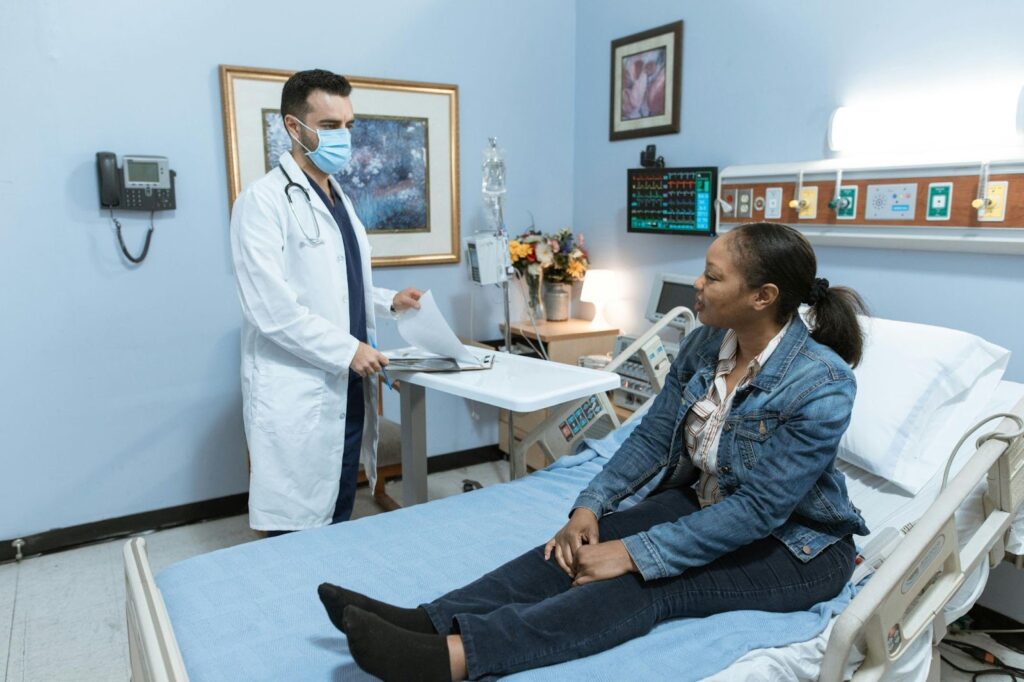
Introduction
Urgent care clinics are essential healthcare providers that offer immediate medical attention for a variety of acute conditions.
Integrating trauma informed therapy and hormone replacement therapy (HRT) for women into urgent care clinic practice can provide comprehensive care for female patients.
This article explores the importance of integrating these treatments and the role of urgent care clinics in providing holistic care for women.
Understanding Trauma-Informed Therapy
Trauma-informed therapy is an approach to mental health treatment that recognizes the widespread impact of trauma and seeks to address its effects on individuals.
Trauma-informed therapy emphasizes safety, trustworthiness, choice, collaboration, and empowerment, allowing individuals to heal from past traumatic experiences.
Understanding Hormone Replacement Therapy (HRT) for Women
Hormone replacement therapy (HRT) for women involves the administration of estrogen, progesterone, or a combination of both hormones to alleviate symptoms associated with menopause, perimenopause, or hormonal imbalances.
Common symptoms treated with HRT include hot flashes, night sweats, vaginal dryness, mood swings, and sleep disturbances.
Integration of Trauma-Informed Therapy and HRT for Women in Urgent Care Clinics
1. Comprehensive Evaluation and Assessment
Urgent care clinics provide comprehensive evaluation and assessment for women seeking trauma-informed therapy and hormone replacement therapy. Healthcare providers are trained to recognize the signs of trauma and provide sensitive and supportive care.
2. Treatment and Management
Urgent care clinics offer immediate treatment and management for women experiencing symptoms related to trauma and seeking hormone replacement therapy.
This may include medication management, therapy referrals, and support services to address both physical and emotional needs.
3. Coordination of Care
Urgent care clinics facilitate coordination of care between mental health professionals, gynecologists, and other specialists to ensure that women receive comprehensive and integrated treatment.
This collaboration ensures a holistic approach to patient care, addressing both physical and emotional well-being.
4. Patient Education and Support
Urgent care clinics provide patient education and support regarding trauma-informed therapy, hormone replacement therapy, and their potential interactions and benefits.
This includes information on coping strategies, self-care techniques, and community resources for ongoing support.
Case Study: Integrating Trauma-Informed Therapy and HRT for Women in Urgent Care
Let’s consider the case of Emily, a 45-year-old woman who presents to an urgent care clinic with symptoms of menopause and a history of trauma.
- Emily undergoes a comprehensive evaluation by a healthcare provider who assesses her physical and emotional symptoms.
- The healthcare provider discusses hormone replacement therapy with Emily to address her menopausal symptoms and refers her to a gynecologist for further evaluation and management.
- Additionally, the healthcare provider provides Emily with information on trauma-informed therapy and refers her to a mental health professional for counseling and support.
Conclusion
Integrating trauma-informed therapy and hormone replacement therapy for women into urgent care clinic practice offers comprehensive and holistic care for female patients.
By providing evaluation, treatment, and coordination of care for both physical and emotional needs, urgent care clinics ensure that women receive the support and resources they need to improve their overall well-being.
Through collaboration with specialists and patient education, urgent care clinics play a crucial role in addressing the complex needs of women and promoting healing and recovery.







